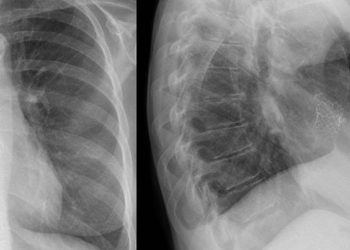Sarcopenia may be associated with an increased risk of cardiovascular disease
1. In this prospective cohort, there was a significantly increased risk of developing cardiovascular disease (CVD) in the participants with possible sarcopenia at baseline compared to those without sarcopenia. The participants with sarcopenia at baseline also had an increased risk, however, it was not significant.
2. Participants with possible sarcopenia who regained non-sarcopenia status, as well as those with sarcopenia who improved to either possible- or non-sarcopenia status experienced a significantly lower risk of developing CVD.
Evidence Rating Level: 1 (Excellent)
Sarcopenia is characterized by a progressive loss of muscle mass and strength resulting from factors like inflammation, or mitochondrial dysfunction, commonly presenting in middle-aged and older adults. Due to the decline of muscle strength, adverse clinical outcomes, ranging from falls or fractures to decreased quality of life and increased risk of mortality. Cardiovascular disease (CVD) is another condition in which incidence increases with age. To understand the connection between the two conditions, this study sought to examine the association between sarcopenia changes and new-onset CVD in adults. The data for this prospective cohort study was collected from the China Health and Retirement Longitudinal Study (CHARLS). Individuals were ineligible to participate if they had missing sarcopenia data at baseline, CVD at baseline, or were lost to follow-up. The Asian Working Group for Sarcopenia (AWGS) algorithm was used to evaluate sarcopenia status. This algorithm includes three components, those being muscle strength, appendicular skeletal muscle mass (ASM), and physical performance. Of the participants included in the study, 180 of them (2.4%) met the criteria for severe sarcopenia occurring when there is low muscle mass along with low muscle strength and physical performance. There were 1874 participants with possible sarcopenia, characterized by either low muscle strength or low physical performance. A total of 7499 participants (average age, 58.5 years) were included in the baseline analysis, while 4822 participants (average age 58.4 years) were included in the analysis of sarcopenia changes. Compared to participants without sarcopenia, those with possible sarcopenia had an increased risk of developing CVD (HR 1.25, 95% CI, 1.11-1.42). Patients diagnosed with sarcopenia had an increased risk of developing CVD as well, in comparison to those without sarcopenia, however, this was not statistically significant (HR 1.01, 95% CI, 0.81-1.26). There was an increased risk of new-onset CVD in patients who progressed to possible sarcopenia or sarcopenia compared to those with stable non-sarcopenia (HR 1.30, 95% CI, 1.06-1.59). Conversely, there was a decreased risk of developing CVD in participants who had sarcopenia at baseline who recovered to possible- or non-sarcopenia compared to those with stable sarcopenia (HR 0.61, 95% CI 0.37-0.99). A similar trend was observed for those with possible sarcopenia at baseline who recovered to non-sarcopenia. The recoverees had a decreased risk of developing CVD compared to those who stayed in the possible sarcopenia group (HR 0.67, 95% CI, 0.52-0.86). Overall, advancing sarcopenia status heightens the risk of developing CVD, whereas recovery from sarcopenia lowers it.
Click to read the study in BMC Medicine
Image: PD
©2024 2 Minute Medicine, Inc. All rights reserved. No works may be reproduced without expressed written consent from 2 Minute Medicine, Inc. Inquire about licensing here. No article should be construed as medical advice and is not intended as such by the authors or by 2 Minute Medicine, Inc.







